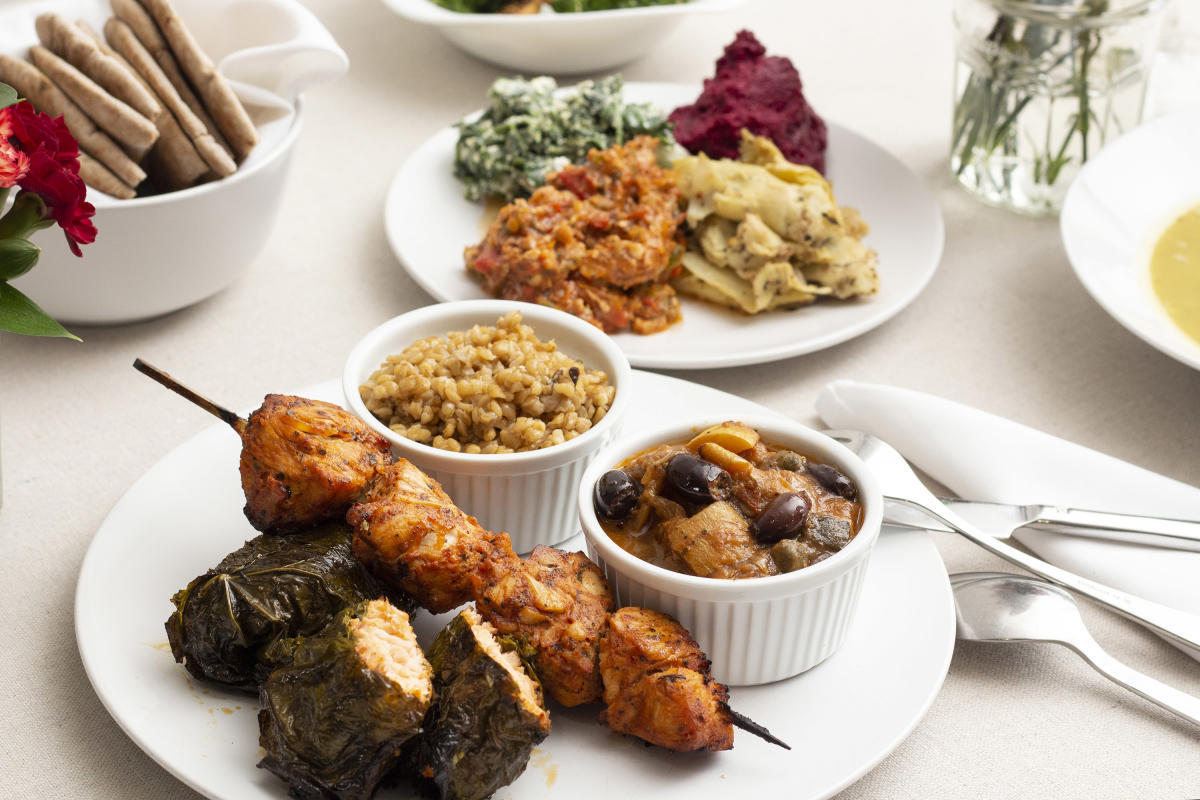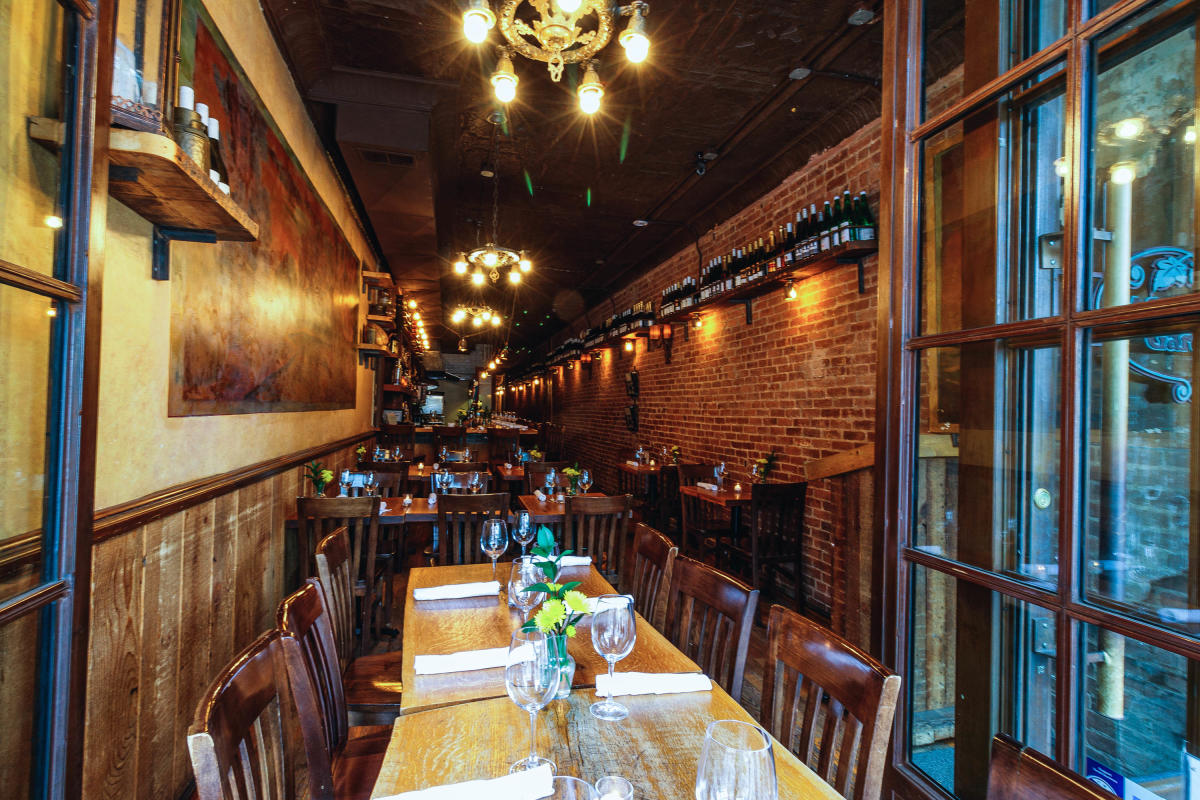Kashkaval Hell's Kitchen - A Culinary Quest
Stepping into Hell's Kitchen for a bite to eat can feel a bit like searching for something truly special, something that really speaks to you. It's a place where every corner seems to hold a new flavor, a different kind of experience just waiting to be discovered. When you're looking for something specific, like a dish featuring kashkaval, it becomes more than just a meal; it turns into a kind of personal mission, a quest for that perfect taste. You want to feel good about what you find, knowing it’s been prepared with care and offers a genuine sense of the place.
Finding the right kashkaval in this lively part of the city, you know, it's not always as simple as it might seem. This particular cheese, with its unique texture and taste, needs a certain touch to truly shine. It asks for cooks who understand its character, folks who can bring out its best qualities in a dish. So, it's almost like you're on the hunt for a specific kind of comfort, a flavor that feels both familiar and exciting all at once.
This search, in a way, mirrors other important searches we sometimes face, like looking for fair treatment or good choices when options seem limited. Just as folks deserve honest information and compassionate consideration, a diner in Hell's Kitchen, too, deserves a culinary experience that’s truly satisfying and well-made. It's about getting what you need, with a sense of respect for the process and the people involved.
Table of Contents
- A Taste of the Unfamiliar
- What Makes Kashkaval a Culinary Challenge in Hell's Kitchen?
- Exploring the Depths of Kashkaval Hell's Kitchen
- How Do We Find the Right Kashkaval Experience in Hell's Kitchen?
- Considering the Ethical Plate - Kashkaval in Hell's Kitchen
- The Path of a Dish - Kashkaval's History in Hell's Kitchen
- Who Benefits from a Great Kashkaval Dish in Hell's Kitchen?
- Can We Truly Appreciate Kashkaval's Character in Hell's Kitchen?
A Taste of the Unfamiliar
Kashkaval, for some, might be a flavor they haven't tried before, a bit of a mystery on the menu. It's a type of cheese, often with a slightly salty, firm yet meltable nature, popular in parts of Eastern Europe and the Middle East. Thinking about it, trying something new in a busy place like Hell's Kitchen can be a lot like checking out different options when you're looking for something important, say, a used car. You want to get a feel for it, you know, see if it's the right fit for your particular needs and what you like. There are so many choices out there, and each one brings its own set of characteristics to the table, or, in this case, to the plate.
The initial encounter with kashkaval might bring up questions about its background, where it comes from, and how it’s traditionally used. It's not like cheddar or mozzarella, which are pretty common here. This cheese asks for a little more thought, perhaps a moment of reflection before you dig in. It's a bit like when you're presented with a situation that needs a gentle touch, like making sure someone gets the kind of support they truly need, without pushing too hard. That, is that, kind of careful consideration really makes a difference.
When you finally taste kashkaval, especially when it's prepared well, it can be a really pleasant surprise. It has a way of holding its shape when heated, getting gooey but not completely losing its form, which makes it great for baking or frying. This quality, in a way, speaks to resilience, to something that holds up even when things get hot. It’s about finding something dependable, something that delivers on its promise, whether it's a delicious meal or a reliable service.
What Makes Kashkaval a Culinary Challenge in Hell's Kitchen?
Bringing kashkaval into the lively food scene of Hell's Kitchen, well, it presents its own set of interesting situations. This isn't a cheese that every chef here is used to working with, so, too it's almost like introducing a new concept into a long-standing system. You have to figure out how it fits, how it can be used in ways that make sense to the local palate while still respecting its origins. It asks for a certain kind of creativity, a willingness to experiment but also to honor tradition.
One of the things that makes kashkaval a bit of a challenge is its unique texture and flavor profile. It's not as mild as some other cheeses, and its firm body means it needs specific cooking methods to soften and release its full potential. You can't just toss it in any dish and expect magic. This is sort of like trying to make sure everyone gets fair access to something, like medical care, where you have to consider each individual's particular needs and how best to meet them. It's about providing options that truly work for the situation at hand.
Then there's the question of sourcing good kashkaval. For a chef in Hell's Kitchen, getting a consistent supply of high-quality ingredients is always a consideration. Finding the best kashkaval means knowing where it comes from, how it’s made, and ensuring it meets certain standards. This pursuit of quality, you know, it reminds me a little of the careful steps taken to ensure that people in difficult circumstances receive truly compassionate attention. It’s about making sure the right resources are there, and that they are used in a way that truly benefits everyone involved.
Exploring the Depths of Kashkaval Hell's Kitchen
When you start to really look into the dishes featuring kashkaval in Hell's Kitchen, you begin to see the different ways chefs approach this ingredient. Some might use it in a simple, straightforward manner, letting its natural taste shine. Others might combine it with other flavors, creating something entirely new. It's a bit like looking at all the choices available when you're trying to find a good used car; you can see different models, different features, and how each one might serve a slightly different purpose. You're trying to figure out what truly works for you.
This exploration can feel like a search for hidden gems, places where the kashkaval is treated with a kind of respect, where its qualities are truly understood. It's not just about putting cheese on a plate; it's about crafting an experience. This sort of careful attention, honestly, it's what you hope for in any situation where care is needed, like making sure people have access to the right kind of support, especially when things are tough. You want that genuine effort, that real consideration for well-being.
The depth of kashkaval in Hell's Kitchen isn't just about the cheese itself, but also about the stories behind the dishes. Is it a family recipe? Does it come from a specific tradition? These stories add layers to the experience, making it more than just food. They give it a sense of history, a connection to something larger. This really is quite similar to understanding the background of any important system, like how healthcare has developed over time, and seeing how those past experiences shape what we have today.
How Do We Find the Right Kashkaval Experience in Hell's Kitchen?
Finding that just-right kashkaval experience in Hell's Kitchen can feel a little like a personal investigation. You might start by asking around, looking at what people are saying, or perhaps checking out places that specialize in certain kinds of food. It's a bit like searching for that ideal used car online, where you look at reviews, compare different listings, and try to get a sense of what's out there before you even step foot anywhere. You're gathering information to make a good choice.
Once you have a few places in mind, you might want to try a dish or two. This is like taking a test drive, you know? You get to see how it performs, how it feels, and if it truly meets your expectations. Does the kashkaval have the right texture? Is the flavor balanced? These are the kinds of questions you ask yourself. It’s about experiencing it firsthand, rather than just reading about it, to make sure it’s a good fit for what you like.
The "right" experience for one person might be different for another, and that's perfectly okay. Some people might prefer a very traditional kashkaval dish, while others might be looking for something more inventive. It’s about what resonates with you personally. This really is quite like how different people might have different needs when it comes to support systems; what works for one might not be ideal for another, and the goal is always to find what serves each individual best.
Considering the Ethical Plate - Kashkaval in Hell's Kitchen
Thinking about the food we eat, even something like kashkaval in Hell's Kitchen, can sometimes lead us to consider broader questions about where our food comes from and how it's produced. Are the ingredients sourced responsibly? Are the people involved in making and serving the food treated fairly? These are not always easy questions to answer, but they are worth thinking about. It's a bit like looking at the bigger picture of care, making sure that the systems in place are truly just and considerate of everyone involved.
The idea of an "ethical plate" means more than just taste; it's about feeling good about the whole process, from farm to table. It's about knowing that the choices you make as a consumer align with your values. This kind of consideration, you know, it parallels the deeper discussions about what it means to provide compassionate and equitable care, especially in situations where people might be vulnerable. It’s about doing things in a way that feels right, not just for you, but for everyone.
When a restaurant in Hell's Kitchen takes the time to explain where their kashkaval comes from, or how they support local producers, it adds a whole new layer of appreciation to the meal. It shows a commitment to something beyond just profit. This transparency and dedication, basically, it's what builds trust and makes you feel more connected to the experience, much like knowing that a service is truly committed to the well-being of those it serves.
The Path of a Dish - Kashkaval's History in Hell's Kitchen
Every dish has a story, and kashkaval in Hell's Kitchen is no different. It has traveled, in a way, from its origins to find a place on menus here. This path involves the traditions of cheese-making, the migration of people who brought their culinary heritage with them, and the creativity of chefs who adapt these traditions for a new audience. It’s a pretty interesting journey, actually, how flavors move and change over time.
The history of kashkaval, as it shows up in this neighborhood, might not be written down in big books, but it lives in the kitchens and the hands of the cooks. It’s in the way a dish is prepared, the seasonings used, and the little touches that make it unique. This sort of living history, you know, it reminds me of how important it is to understand the background of any system, like the way support for people in difficult times has evolved. Knowing the past helps us understand the present and plan for the future.
When you taste a kashkaval dish that feels authentic, it’s like you’re connecting with that long path it has taken. It’s a moment where you can appreciate the skill and the cultural heritage that went into creating it. This kind of appreciation for history and tradition, in some respects, is a really important part of understanding any field, whether it's food or the way we care for others. It’s about respecting where things come from.
Who Benefits from a Great Kashkaval Dish in Hell's Kitchen?
When a kashkaval dish in Hell's Kitchen is truly great, it’s not just the person eating it who gets something good out of the experience. The chef who made it, the restaurant that serves it, and even the people who produced the cheese all benefit. It creates a positive feeling all around, a sense of shared enjoyment and success. It's like when a system works really well, and everyone involved, from those giving care to those receiving it, feels better for it.
A really good kashkaval dish can bring new customers to a restaurant, creating more business and opportunities for the people who work there. It can also introduce more people to this interesting cheese, sparking curiosity and encouraging them to explore other flavors. This kind of positive ripple effect, you know, it’s something you hope for in any effort to improve things, where good work leads to wider benefits for the community.
Ultimately, the whole food scene in Hell's Kitchen gets a boost when places offer unique and well-made dishes like those featuring kashkaval. It adds to the neighborhood's reputation as a place where you can find exciting and diverse culinary experiences. This sort of collective improvement, basically, it’s what happens when individual efforts contribute to a larger, more vibrant whole, making the entire area a better place for everyone to enjoy.
Can We Truly Appreciate Kashkaval's Character in Hell's Kitchen?
To really get kashkaval's character in Hell's Kitchen, it takes more than just a quick bite. It asks for a moment to slow down, to pay attention to the details of the dish, and to think about what makes it special. It's a bit like when you're trying to understand a complex situation; you need to give it time, consider different angles, and really listen to what it's telling you. That, is that, kind of thoughtful engagement really helps you see the true nature of something.
Appreciating kashkaval's unique qualities means being open to flavors and textures that might be different from what you're used to. It's about letting go of expectations and simply experiencing what's in front of you. This openness, you know, it’s pretty important in all sorts of situations, like when you're trying to find the best solution for someone's needs, and you have to consider all the possibilities without preconceived notions.
When you truly connect with a kashkaval dish, it becomes more than just food; it becomes a memorable moment, a part of your own personal culinary story. It's about the feeling it leaves you with, the new taste you've discovered, and the experience of finding something genuinely good in a place like Hell's Kitchen. This kind of genuine connection, honestly, it’s what we all look for, whether it’s in a meal or in the way we interact with the world around us.

Kashkaval Garden | Hell's Kitchen restaurant | NYCtourism.com

Kashkaval Garden | Hell's Kitchen restaurant | NYCtourism.com

Kashkaval Garden in Hells Kitchen | NYC Tourism